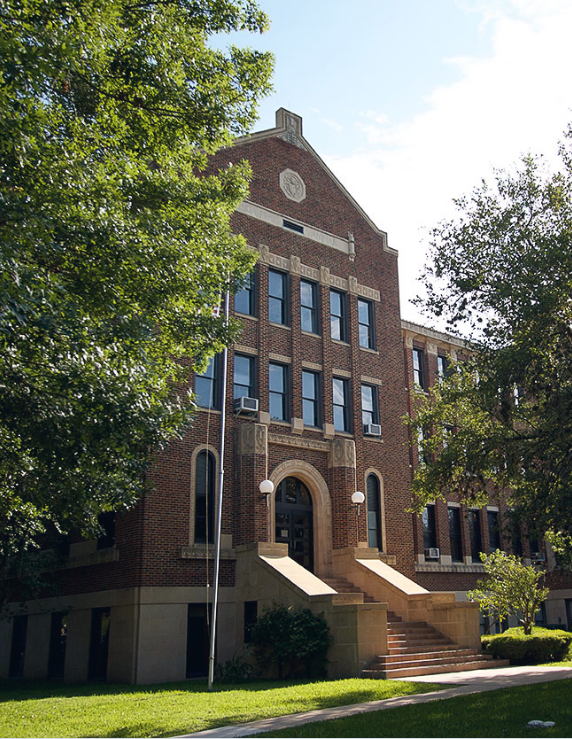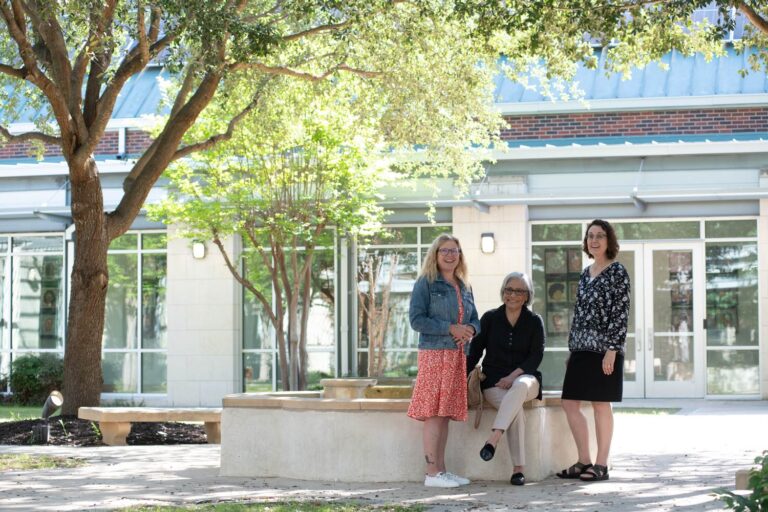“Chaos is humanity’s propensity for running itself out of and away from God’s loving and harmonious plan.”
Many of us lament how difficult it is to find our bearings in these trying times. How do we remain sane when surrounded by chaos? Political divisions, civil unrest, climate catastrophes, food scares, lack of civility in public discourse, economic disparity and uncertainty, drug-resistant diseases, unethical behaviors in our political, religious and business worlds, and abuses of power by leaders who are supposed to guide and protect the most vulnerable in society. The list seems endless. How can we live from our religious and spiritual convictions in the midst of all this turmoil?
First, it is helpful to understand the theological meaning of chaos. Chaos and disorder are what prompted God to intervene as both a creator and savior. In the book of Genesis, God makes order out of chaos as he creates the heavens, the earth, and human beings. God celebrates all his creation as good and human beings as “very good!” In the meditation on the Trinity in the Spiritual Exercises of Saint Ignatius, the three persons decide to send one of them to save the world of its chaos. Jesus is a response of loving mercy from our Trinitarian God to save humanity from its hellish turmoil and chaos.
In his excellent book on the corporal and spiritual works of mercy, James Keenan, SJ says that “(a)s the willingness to enter into the chaos of another, mercy best conveys the actions of God who creates by bringing order out of chaos and who redeems by lifting us out of the chaos of sin.” In this light, it is clear that chaos is related to sin, division, and hell. Chaos is humanity’s propensity for running itself out of and away from God’s loving and harmonious plan. God’s response to chaos is the desire to give of himself more fully. This revelatory giving of God’s self through Jesus Christ is the ultimate motivation to move into chaos as a loving response of self-gift through works of mercy.
Jesus entered the chaos of humanity and death for us. It follows that we never face turmoil, confusion, and disorder alone. Jesus is our close companion so we may enter into pandemonium and disunity knowing we will remain safe and sane. Jesus is the archetypal figure who, because he has descended into hell for three days, has the power to transform the most harrowing turmoil or the deepest despair into an act of trust in God’s goodness. Evil never has the last word. With Jesus Christ, chaos is transient, and harmony prevails!
Second, we need to appreciate how spiritual luminaries have dealt with chaos; their inner turmoil and the chaos in their own social and religious contexts. Throughout history, mystics and spiritual figures have surmounted unbearable odds and faced chaos and turmoil with solid, and even optimistic, faith. Teilhard de Chardin’s eco-mysticism was born in his mother’s devotion to the Sacred Heart which later expanded in circles of cosmic love. This love purified in the furnace of human suffering. As a young man, he was profoundly affected by the human capacity for destruction in the chaos of war. As stretcher bearer, he carried the mangled bodies of wounded soldiers during WW I. He lived with the reality of turmoil during the war and later experienced the confusion of being rejected as a misunderstood seeker wanting to unite science with religious truth. Saint Ignatius faced the chaos of his inner demons in a cavern as he progressed in recognizing how his desire for holiness could be distorted by the evil one. He learned to let go of dangerous ascetic practices powered by self-reliant pride and ego and open himself to God’s loving mercy as a humble child of God.
Two of my favorite mystics, Julian of Norwich and Etty Hillesum, were surrounded by turmoil and disorder of various kinds. Julian of Norwich, the 14th Century English anchoress, proclaimed in her Showings a gentle God of mercy and an enduring trust in God’s benevolent will. She did this as much of Europe, and the town of Norwich, England had seen three series of plagues and protracted religious and political conflicts. Julian refused to give into the widespread view that the chaos of disease and war were divine punishment due to lack of religious practice and dissolute moral living. Her eremitical life devoted to prayer yielded an intimacy with Jesus that flooded her soul with hope: “But Jesus… answered with these words and said: ‘It was necessary (useful) that there should be sin, but all shall be well, and all shall be well, and all manner of thing shall be well.’ These words were said most tenderly, showing no manner of blame to me nor to any who shall be saved.” It is no wonder that she was consulted and valued by many for her keen spiritual insights.
Etty Hillesum is a modern atypical mystic. She was a young Dutch woman from a middle-class Jewish family who read and studied philosophy, psychology, art, and the evangelists. She was a woman of desire who struggled with sensuality, disordered attachments, and petty sufferings. They progressively morphed into self-surrendering love as she learned to trust God and followed her deepening urge to kneel in humble prayer. She was engaged in a profound spiritual and religious transformation which resulted in her decision to work and later die with her people in concentration camps. Through this transformation, a mission and a vocation emerged: “One would like to be a balm poured on so many wounds…I feel within me the binding and driving force of an ever-present, ever deeper gravity… My real job has only just begun: Hitherto, basically, I was only having fun…”
Etty’s journals and letters, imbued with religious and artistic sensitivity, articulate her unusual spiritual journey as she grapples with the evils of Nazism, it’s appalling anti-Semitism and the dreadful inhumanity of genocide. Hillesum is a vibrant example of a young woman who found in her growing faith, along with the help of mentors and friends, the strength needed to face her inner turmoil and later to meet the chaos of war and death with the compassionate hope of universal love.
If history can help us in witnessing to the power of self-sacrifice in times of chaos, it is because it stems from a place of profound transformation. This transformation begins, as it did with Ignatius, Teilhard, Etty, and many others, with the ability to face our inner demons and rely entirely on God. In time, this transformation blossoms into selfless service. As Bishop Rowan Williams, Anglican Bishop of Canterbury said to the Synod of Bishops in Rome in 2012 “…contemplation is the only ultimate answer to the unreal and insane world that our financial systems and our advertising culture and our chaotic and unexamined emotions encourage us to inhabit. To learn contemplative practice is to learn what we need to live truthfully and honestly and lovingly. It is a deeply revolutionary matter.”
Contemplative prayer is the pillar offering us certainty in our capacity to hold and transform inner and outer chaos. There is no fruitful action without contemplation. In it lies the resilience to meet the chaos of the world with God’s strength and hope. Without it, the revolution we seek in changing the chaos surrounding us remains naïve wishful thinking or frenzied activism powered by pride and fear.
 Fr. Daniel Renaud, OMI is a priest, religious and itinerant preacher with the Missionary Oblates of Mary Immaculate of the US province. Mentored by Fr. Ronald Rolheiser, OMI he ministers from the campus of the Oblate School of Theology (OST) in San Antonio, Texas. Fr. Renaud has degrees and training in drama education, theology, pastoral ministry, psychodrama and spiritual direction. He has preached retreats to priests, men and women religious, deacons and wives and lay people on desire and mysticism, 12 steps recovery, Ignatian spirituality and Jungian shadow work, ecological conversion, the Beatitudes and human development and grief and life transitions. Fr. Renaud is a member of Spiritual Director International (SDI). His areas of interest are resilience, finding one’s mission and purpose in life, spiritual healing of traumatic relationships and everyday mysticism.
Fr. Daniel Renaud, OMI is a priest, religious and itinerant preacher with the Missionary Oblates of Mary Immaculate of the US province. Mentored by Fr. Ronald Rolheiser, OMI he ministers from the campus of the Oblate School of Theology (OST) in San Antonio, Texas. Fr. Renaud has degrees and training in drama education, theology, pastoral ministry, psychodrama and spiritual direction. He has preached retreats to priests, men and women religious, deacons and wives and lay people on desire and mysticism, 12 steps recovery, Ignatian spirituality and Jungian shadow work, ecological conversion, the Beatitudes and human development and grief and life transitions. Fr. Renaud is a member of Spiritual Director International (SDI). His areas of interest are resilience, finding one’s mission and purpose in life, spiritual healing of traumatic relationships and everyday mysticism.



